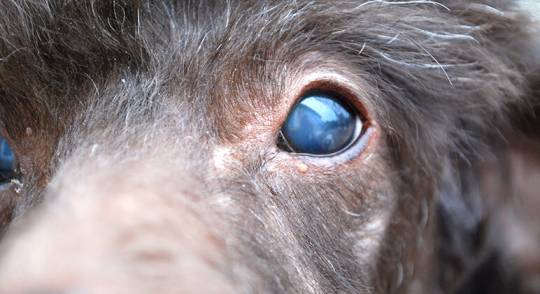Have you heard of dog blood donations? Do you have questions about canine blood donations? Would you like your dog to donate blood to help save another dog’s life? Then you’ve come to the right place. We’ve gathered information to help answer these and other questions you may have about canine blood donations.
Connect with a verified veterinarian in minutes. Licensed vets are available 24/7 to answer your questions. No need to worry about your furry family member.
What is a Dog Blood Donation?
Can a dog donate blood? Yes! Just like their humans, dogs sometimes need transfusions of blood products. In fact, the need for canine blood donations has increased in the past several years due to new veterinary treatments. New types of surgery, emergency and cancer care and more are becoming more common for dogs. As a result, dogs receiving certain treatments may require blood products and transfusions to regain their health and/or save their lives.
Dog blood banks, though relatively new, are becoming more numerous. They work just like human blood banks. Volunteer dogs donate blood, which is then processed to create certain blood products including red blood cells, fresh or frozen blood plasma, etc. When a veterinarian needs blood products to treat a canine patient, they can contact a canine donation bank to order what they need. So, dogs who volunteer to make blood donations can save the lives of other dogs. Your own dog could become a hero!
Dog Blood Types
Did you know that dogs have different blood types, just like we do? Actually, rather than having blood types, dogs have blood groups. Canines have more than twelve different blood groups, though eight are the most common. If a dog needs a transfusion, the vet will test the dog’s DEA (Dog Erythrocyte antigen) to find his blood group. Here are the most common blood groups for dogs:
- DEA 1.1
- DEA 1.2
- DEA 3
- DEA 4
- DEA 5
- DEA 7
- DEA 8
Dogs with DEA 1.1 negative blood are considered to be universal donors, while dogs with DEA 1.1 positive are considered universal recipients. Greyhounds are considered one of the best breeds for universal blood donations due to their DEA 1.1 negative blood.

Review symptoms, medications & behavior to keep your pets healthy with a Vet Online in just minutes.
Ask a Vet Live NowHow Does Dog Blood Donation Work?
First, a dog must meet certain requirements to donate blood. Each blood donation program has their own rules and requirements when it comes to canine blood donations. The most common requirements include:
1. Must be well-behaved and friendly: is your dog well-behaved and friendly at the vet’s office? Does he handle medical treatments OK? If not, then he’s not a good candidate for giving blood. Any dog donating blood should be easy-going, friendly, well mannered and behave even if you’re not in the room with your fur baby and the vet.
Giving blood can take anywhere from 15-30 minutes, so your pup needs to be able to stay still and relaxed during this time.
2. Age: dogs should be between the ages of 9 months and 9 years of age. (The age requirement may vary depending on which program you use). Puppies that are too young are not good blood donation candidates, and senior dogs are also not good candidates.
3. Spayed or neutered: dogs should be spayed or neutered, with no history of pregnancies (in female dogs, of course!).
4. A dog must be taking heartworm preventive medication and have no other parasites.
5. Dogs must be current with all preventive health care, including required vaccinations.
6. Dogs should have overall good health, have no history of disease, and should not be taking any type of medication.
7. Dogs should weigh over 35 lbs., but not be overweight or obese.
If your fur baby is healthy, he may be eligible to give blood about 4-6 times a year, though he may be able to donate once a month. This will depend on the blood donation program you choose, or your vet’s donation rules, along with your vet’s recommendations specifically for your fur baby.
How Does the Dog Blood Donation Procedure Work?
What happens to my pup when he gives blood? Before the procedure, your dog may undergo a complete physical and have his blood group tested. If he passes the physical, this means your dog will be a healthy donor. The process of drawing blood for donation isn’t complicated. Blood is typically drawn from your pet’s jugular vein, which is located in your pup’s neck. Before the procedure, the vet will have your dog lay on his side—usually on a comfortable pad or bedding. Once he’s lying down, the vet may need to clip or shave the fur on and around the jugular vein. After this, the area is then sterilized, and a needle is gently inserted into your dog’s vein and blood is drawn into a collection bag or other sterile container for blood. It may take anywhere from 15 to 30 minutes for the procedure.
After the blood donation procedure, your fur baby may be given special treatments such as a nice massage or belly rub. He may also receive some yummy treats, a bandana or tag saying he’s donated blood, etc. After all, he was a brave boy! Some dogs may need IV fluids to help them rehydrate after giving blood—there’s nothing to worry about. Your pup may need to stay relaxed and rest for a day, but then he can get back to his normal routine with no problem.
Is Dog Blood Donation Painful for My Dog?
Some dog parents are worried the procedure may be painful or scary for their fur babies. This is a normal and common fear. After all, the process involves needles, etc. Unlike cat blood donations, anesthesia is not generally given to dogs for blood donation. Most dogs tolerate the procedure with no problem.
Some dogs may experience some soreness or swelling at the site blood was drawn. This is normal and nothing to worry about.
The main issue with blood donations is that your pup must be well-behaved and calm at all times. If your dog is one who “bounces off the walls” or doesn’t like going to the vet, he may not be a good candidate to donate blood. That’s OK! Each dog is different, with their own personalities. Think about us humans—not all of us make good blood donors, after all.
Pet Parents & Doggie Benefits for Giving Blood
Some canine blood donation programs offer benefits to the doggie donators and their pet parents. Benefits can include:
- Free typing and blood screening: these are usually expensive procedures; however, they are usually free when your pup donates blood.
- Some vets or blood banks offer savings on future vet visits, free blood transfusions for dogs that donate, or even free or reduced-costs on preventative treatments. Some vets and blood banks even hold donation days, where pets and their pet parents can enjoy socializing, free food and vet services and more.
So, your canine companion could save other dog’s lives with his blood donation. And you and he may even be given some benefits to help lower vet care costs, etc. That’s a win-win situation for everyone!
Can a Dog Donate Blood to a Cat?
What about a dog to cat blood donation? Is this even possible? The short answer is yes! Research has been conducted on dog to cat blood transfusions and on occasion, though rare, sometimes vets have no other choice but to use a doggie blood donor to help a very sick cat. The medical term for a blood transfusion between different species is xenotransfusion. This type of procedure is rarely used. Dogs and cats have different blood types; however, a once-in-a-lifetime dog to cat blood transfusion is possible. There’s one famous incident where a cat, named Buttercup, was extremely anemic. The vet tried to have compatible cat blood sent from a blood bank, but it wouldn’t reach the office in time to save Buttercup. As a result, the vet chose to try a canine blood transfusion for the cat. The vet gave Buttercup Greyhound blood, as their blood can be used for universal donations. Buttercup received the dog blood transfusion in time and was able to go on to a healthier life after he recovered.
The only caveat for dog to cat blood transfusions is that the cat can never have received a previous canine transfusion, and they can never have another blood transfusion of this type again later in life. This is because the cat’s immune system may readily accept the canine blood the first time. The cat has no antibodies built up to the dog’s blood. However, if the cat has another transfusion of dog blood at some point in the future, their immune system will be triggered to create antibodies. These antibodies will attack the red blood cells and can lead to the death of the cat. This type of xenotransfusion is OK as long as the cat shows no signs of rejection during or after the blood transfusion. Most cats will be OK and go on to live happy, healthy lives afterwards.
How do I find a Dog Blood Bank Near Me?
If you’re interested in signing your fur baby up to be a blood donor, you can check with your vet. Some veterinarians will draw blood for blood banks. If your vet isn’t a part of a blood donation program, they may also be able to recommend a canine blood bank in your area.
Another option is to do an online search using the phrase “dog blood donations near me.” If you use this phrase on Google, the search will bring up a map with locations near your home. Then you can just choose the nearest dog blood bank or do a little research to choose a blood bank in your area.
Dog Blood Donations Save Lives
Canine blood donations are becoming more common due to the new advances in veterinary treatments Not only that, but a blood transfusion can save the life of a dog that’s been in an accident or is critically ill. If you think your dog may be a good donor candidate, be sure to check with your vet and/or take your dog to visit a dog blood bank for a physical and blood tests. You pup could end up being a hero by donating blood. He could very well save the life of another dog.
Connect with a verified veterinarian in minutes. Licensed vets are available 24/7 to answer your questions. No need to worry about your furry family member.

Kyoko
Kyoko is from a family of 3 and moved to New York with her parents and siblings when she was 13. Kyoko is fond of spending a great amount of time with pets, specifically her beagle Luna and cat Missy. Her boyfriend often complains that she spends too much time giving attention to their animals. Kyoko has written dozens of articles concerning pets and is aiming at owning a pet shop one day!
Review symptoms, medications & behavior to keep your pets healthy with a Vet Online in just minutes.
Ask a Vet Live Now



